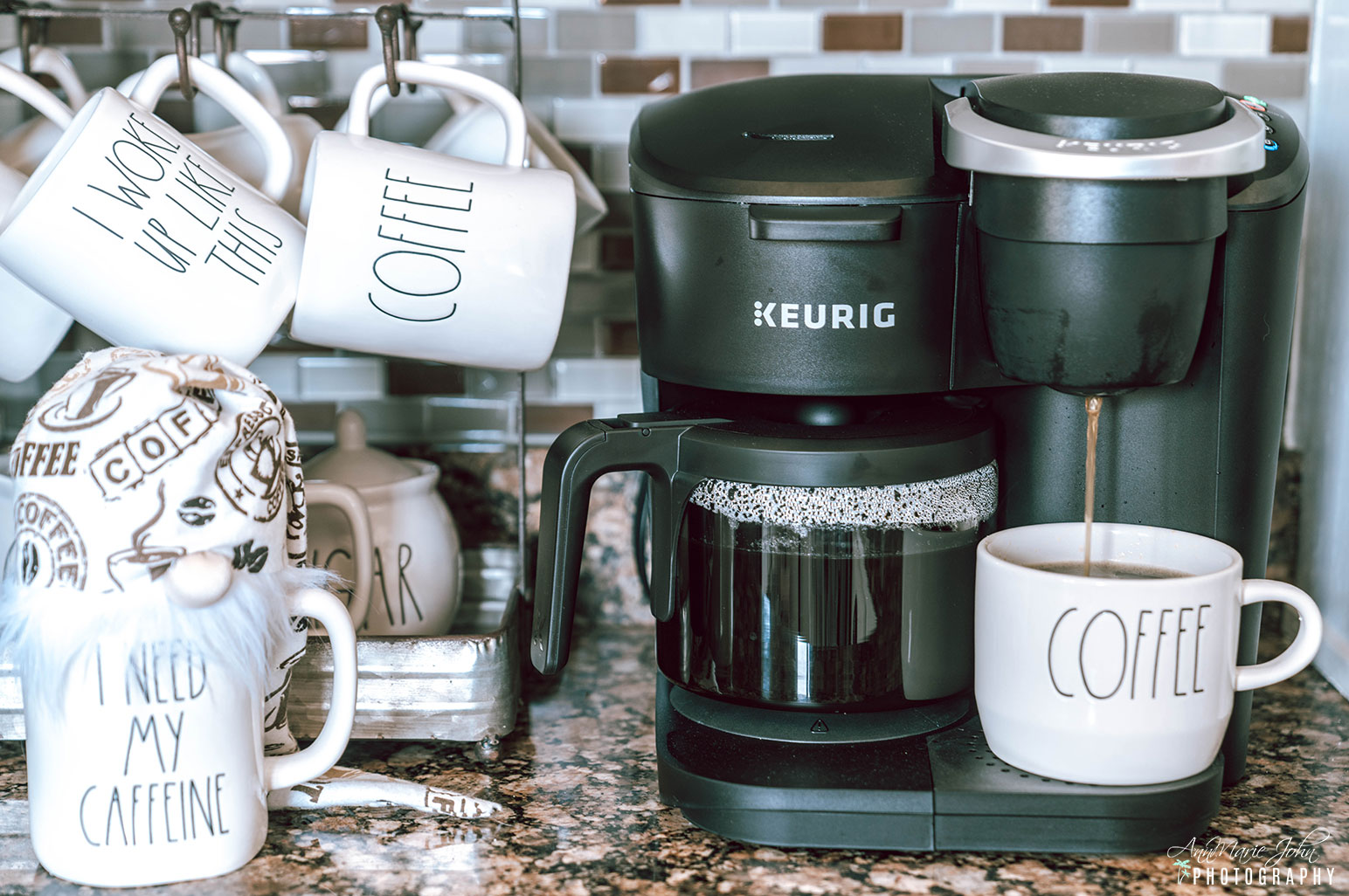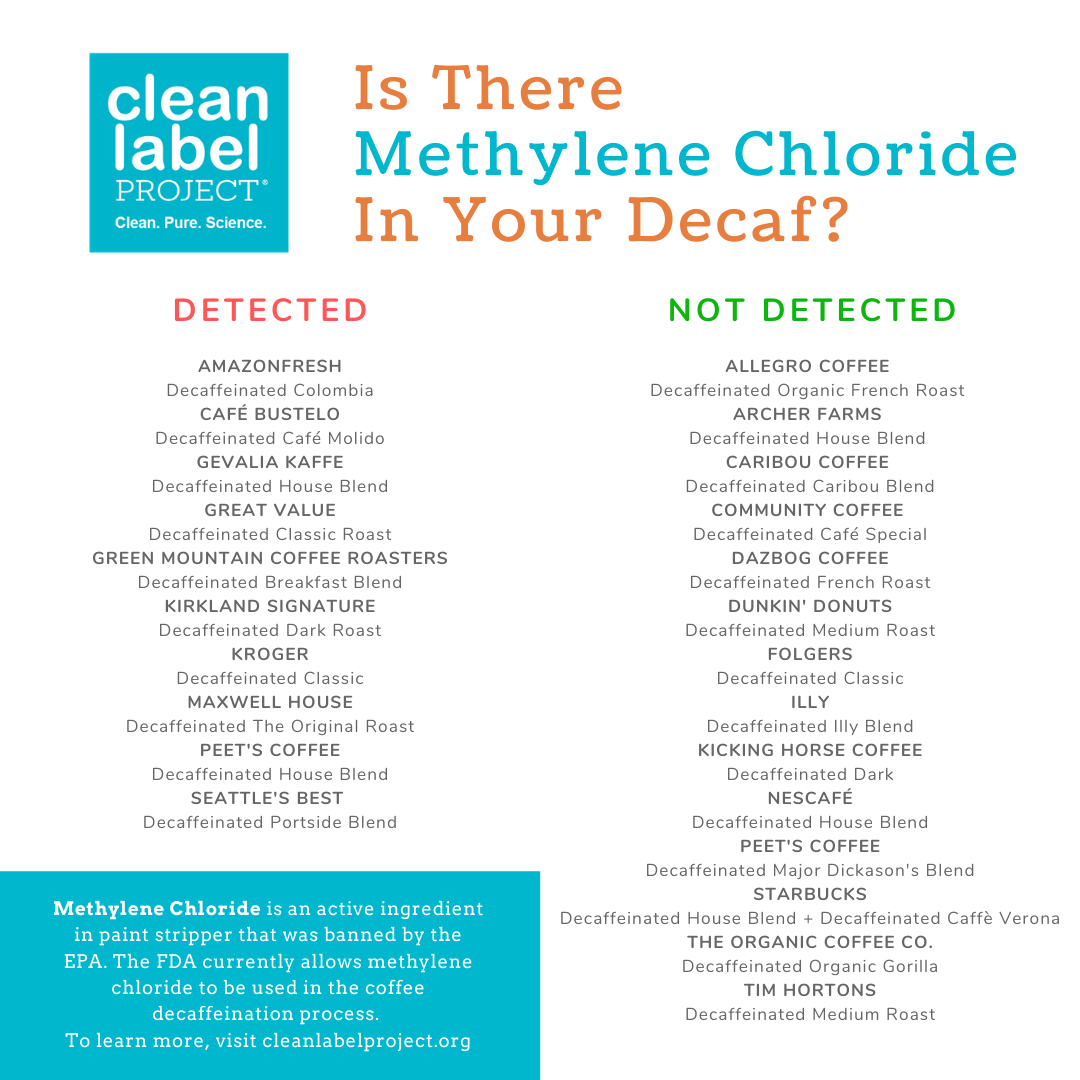I genuinely look forward to starting each day with a cup of coffee. It’s my favorite part of my morning routine. There’s just something about the process of brewing a fresh pot, making a cup exactly the way I like it, and slowly easing into the day as I sip my morning mug of coffee that I simply can’t replace. A morning without coffee just feels wrong.
This post is sponsored by the Clean Label Project, however, all opinions are mine alone.

But I’ve got a secret…
I don’t do it for the energy. I actually drink decaf. I made the switch when I was on a mission to cut back on caffeine, and I’ve never gone back.
And while I love my decaf coffee, I’ve learned a few things recently that made me open my eyes and reconsider the way I enjoy it – like the fact that many decaf coffees contain potentially dangerous environmental contaminants and toxins.
Specifically, the Clean Label Project recently released a study showing the presence of methylene chloride in many popular decaf coffee brands. What’s the big deal? Methylene chloride is the active ingredient in paint strippers – which isn’t something we typically place in the ‘good for you’ category.

How does methylene chloride end up in our decaf coffee? It comes down to the process of extracting caffeine. Producers who use a water-based decaffeination process spend more time extracting the caffeine from their beans, and may lose some flavor as well – but many prefer the faster process of extracting the caffeine with a chemical-based solvent. And when producers opt for the chemical-based extraction method, they’re likely using methylene chloride to do it.
Determined to bring this issue to light, the Clean Label Project tested 25 popular brands found in major retailers for the presence of methylene chloride. While I’m happy to say that many brands, like Starbucks, Caribou Coffee, and Dazbog Coffee tested negative, ten brands tested positive, including decaf options from popular brands like Gevalia, Kroger, Peet’s Coffee, and Seattle’s Best. But you’d never know it since the FDA doesn’t require brands to disclose the decaffeination process they use to treat their coffee beans.

The presence of these toxins is particularly concerning for decaf coffee drinkers. Those choosing to drink decaf are often people dealing with health concerns or who otherwise have a reason to reduce caffeine intake. Common reasons people make the switch to decaffeinated coffee include pregnancy, old age, heart disease, and other medical conditions complicated by too much caffeine. I don’t know about you, but I think the last thing people in this vulnerable group should be doing is exposing themselves to more toxins.
That’s why I’ve partnered with the Clean Label Project to share their findings and raise awareness around toxins like methylene chloride. They’re determined to make a difference. They have taken action by filing lawsuits against four national brands for false and misleading advertising and labeling, targeting brands that have wrongly claimed their decaffeinated coffee products are “pure and natural.”

But it’s on all of us to advocate for our health and well-being – and for the removal of these hidden toxins from our everyday products. The best thing you can do to make a difference? Investigate your favorite brand of decaf coffee to see if methylene chloride is involved in the process – and, if it is, help advocate for chemical-free decaf.
